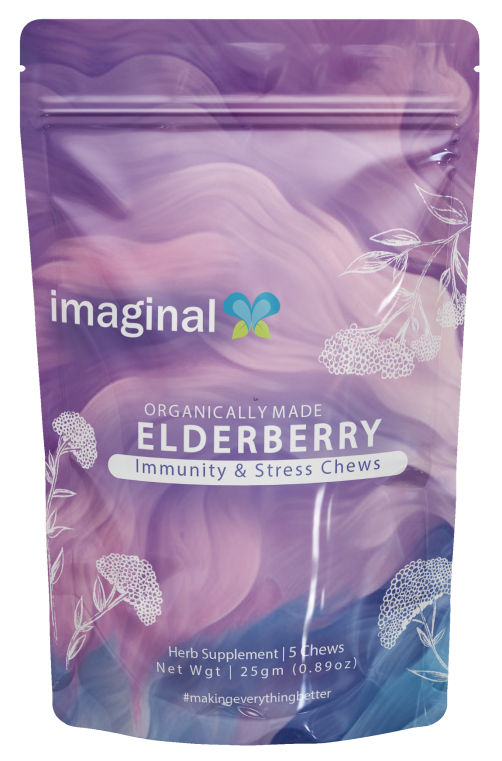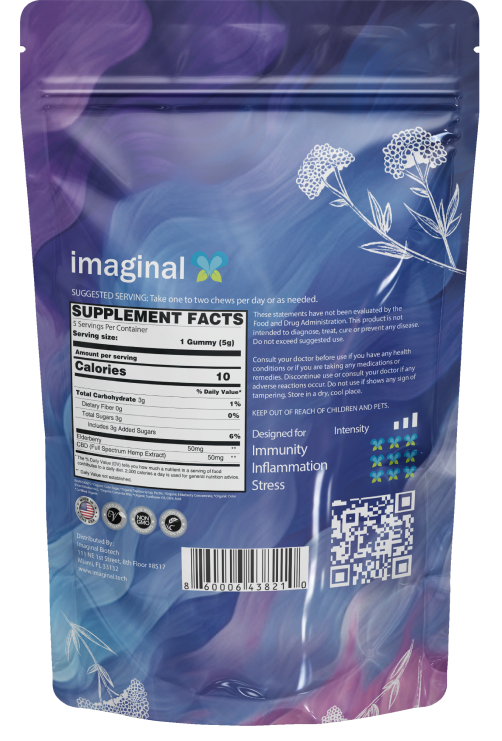One of the few things that make Dr. House, from the TV show relatable, is his addiction to pain pills that he has been popping ever since his botched leg surgery.
Pain is one of the most common conditions after surgery: a US Institute of Medicine survey estimates that 80% of patients experience some degree of postoperative pain.
Most patients are prescribed opioids to manage it, but then it leads to bigger issues like addiction.
According to a meta-analysis of 33 studies, 7% of post-operative patients display signs of addiction, 130 people die daily of opioid overdose, and prescription opioid misuse cost the US health system $78.5bn in 2013!
Can CBD provide relief?
There are a number of studies on CBD that appear to support its effectiveness in improving pain, sleep, and anxiety.
But what does the research say about using CBD for pain after surgery? Read on to find out.
Table of Contents
- The basics of CBD
- What does the research say about using CBD for pain after surgery?
- How does CBD relieve pain after surgery?
- Is it safe to use CBD for post-surgery pain?
- CBD's interactions with post-operative medicine regimen
- Is it legal to use CBD for relieving pain?
- What are the types of CBD available in the market?
- What is the best form of CBD for pain relief?
- CBD for pain after surgery simplified
The basics of CBD
Before we start discussing the role of CBD in managing post-surgery pain, it’s important to first understand what CBD — or cannabidiol — actually is.
It’s a chemical ingredient found in hemp plants and is one of the numerous cannabinoids and chemical compounds that make up the plant.
While CBD is also found in medical marijuana, CBD by itself doesn’t make you high, which means it's safe for consumption.
According to the World Health Organization (WHO), “In its pure state, CBD does not exhibit effects indicative of any dependence or abuse potential”.
However, CBD is considered to be psychoactive.
This might come as a surprise to you because it is often portrayed as non-psychoactive in the media. But since CBD crosses the blood-brain barrier and interacts with receptors in the central nervous system, it’s technically a psychoactive substance.
In addition, CBD can cause feelings of euphoria and relaxation among users when combined with other cannabinoids, flavonoids, and terpenoids. And while these are not strictly “highs”, they are psychogenic effects, making CBD a psychoactive substance.
What does the research say about using CBD for pain after surgery?
While there’s no single answer to managing post-surgery pain, recent research seems to suggest that CBD may be able to offer many people some welcome post-surgery pain relief.
A new study by the Department of Orthopedic Surgery at NYU Langone Health found that a novel pill containing CBD helped greatly reduce post-surgery shoulder pain.
Better yet, the study also didn’t find any safety concerns associated with the new CBD-infused pill.
In the study, a total of 99 participants across two different medical facilities were assigned to either a CBD or a placebo pill group at random.
Both groups were initially prescribed low-dose Percocet — an opioid analgesic — following surgery, and were advised to wean off the drug as soon as possible and to take a CBD or placebo tablet 3 times each day for 2 weeks.
On the first day post-op, those using CBD pills experienced on average 23% less pain than those taking the placebo, suggesting that in patients with moderate pain, CBD may be able to provide significant benefits.
In addition, participants taking CBD reported 22-25% greater satisfaction with their pain management compared to the placebo group.
But despite the promising results, the researchers warned consumers about blindly using the first CBD product they could get their hands on without first consulting with a healthcare professional.
This is because the study used a carefully designed, new experimental drug that isn’t yet available for prescription.
Lastly, many studies have also shown CBD to be highly effective in improving mood and anxiety symptoms.
These relaxing properties may provide patients with some much-desired anxiety and stress relief after undergoing major surgeries.
Now that we know that CBD can be effective for relieving post-surgical pain, let’s discuss how it actually works.
How does CBD relieve pain after surgery?
The endocannabinoid system (ECS) in humans makes chemicals — called endocannabinoids — that bind to receptors and nerve cells throughout the body.

Among other functions, these ECS receptors regulate the brain’s ability to recognize pain, stiffness, aches, and inflammation.
However, sometimes the body fails to produce adequate amounts of endocannabinoids to keep the ECS from functioning properly.
Fortunately, the cannabinoids in CBD can bind to endocannabinoid receptors — specifically CB1 and CB2 receptors — and produce pain-relieving effects by blocking pain signals from reaching the brain.
Is it safe to use CBD for post-surgery pain?
One of the biggest concerns for people who are new to CBD supplements is whether they’re safe for consumption. This is often because many people believe that CBD is similar to THC.
However, the truth is that CBD won’t cause dependence and is derived from a different type of plant — hemp plants instead of cannabis.
Unlike cannabis plants, hemp plants used to make CBD contain negligible or no amounts of THC.
This means using CBD products won’t let you get “high” in the literal sense (although you may experience euphoria) and you won’t experience the adverse effects of THC.
But you may experience some of the side effects of CBD, which include:
- Irritability
- Reduced appetite
- Fatigue
- Diarrhea
- Dry mouth
- Nausea
- Drowsiness
CBD's interactions with post-operative medicine regimen
CBD can also boost the level of certain medications — like blood thinners — in your body by competing for the same liver enzymes that metabolize these drugs.
This is why it’s important to be careful when using CBD for post-surgery pain because you’re often also taking other medications during this period.
Individuals consuming large amounts of CBD may also show irregularities in liver function tests (LFTs).
This effect is also commonly seen with many OTC drugs like Tylenol (acetaminophen), so be sure to let your doctor if you’re using CBD routinely.
However, the biggest safety concern with CBD is that it’s mainly sold and marketed as a dietary supplement and not a medication.
The FDA doesn’t regulate the purity and safety of supplements as strictly as they do for medications.
This means you can’t always be 100% sure that the CBD product you purchase has the exact active ingredients that are mentioned on the label.
So make sure to buy CBD products from reputable brands and consult with your doctor before trying any new supplement, especially if you’re already taking any type of medication.
Incidentally, if you buy from Imaginal, you can always access ingredient data as well as CoA reports for every batch that we produce.

Snippet of a third party lab report that comes with every batch of Imaginal product
Is it legal to use CBD for relieving pain?
As far as legality goes, all states in the US have laws legalizing CBD with variable levels of restrictions.
The 2018 Farm Bill made cultivating hemp plants legal in the US and removed all hemp-derived products like CBD from the Controlled Substances Act.
This essentially makes CBD products derived from hemp plants completely legal. However, CBD made from cannabis is still considered illegal.
Presently, acquiring CBD online without having a medical marijuana license is completely legal in the majority of states.

A map showing states where CBD is legal, as on Jan 2022
What are the types of CBD available in the market?
There’s a wide variety of CBD extracts available in the market but the following are some of the most popular types:
Full-spectrum
These extracts contain CBD oil, flavonoids, terpenes, low quantities of THC (usually less than 0.3%, which is not enough to have addictive effects), and numerous other cannabinoids.
They are associated with the full entourage effect.
Broad-spectrum
These have all the same compounds as full-spectrum CBD and are also linked with the entourage effect. However, they usually don’t contain any THC.
Isolate-based
These products only contain CBD and no other compounds like flavonoids, THC, other cannabinoids, or terpenes.
Therefore, these products don’t have the characteristic “glassy” or “earthy” taste or smell associated with hemp plants and terpenes.
What is the best form of CBD for pain relief?
Another important aspect to consider when using CBD for pain after surgery is the type of CBD product to use.
Even though the effects of all CBD products tend to be similar, everyone has their own preferences depending on their needs and wants.
Some popular forms of CBD include:
- CBD tinctures and oil
- Capsules
- Gummies and other edibles
- Patches
- Topical preparations like lotions and creams
- Vaporizers
One of our customers uses Imaginal Elderberry Gummies to help him with intense pain following a vicious dog bite.
It’s often best to test out a few different types of products to determine what delivers the best results for you.
CBD for pain after surgery simplified
Although we have limited studies looking at CBD’s effectiveness at treating post-surgery pain, current data suggests that it can help.
However, it’s important to be careful when using CBD for pain after surgery because of its ability to interact with other medical drugs prescribed after an operation.
If you would like to try CBD for postoperative pain, make sure to first consult with your healthcare provider.
Finally, remember to buy your CBD products from a highly credible company because the FDA doesn’t regulate them very tightly.
This article has been written by Eilaf Meenai.





